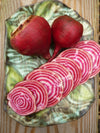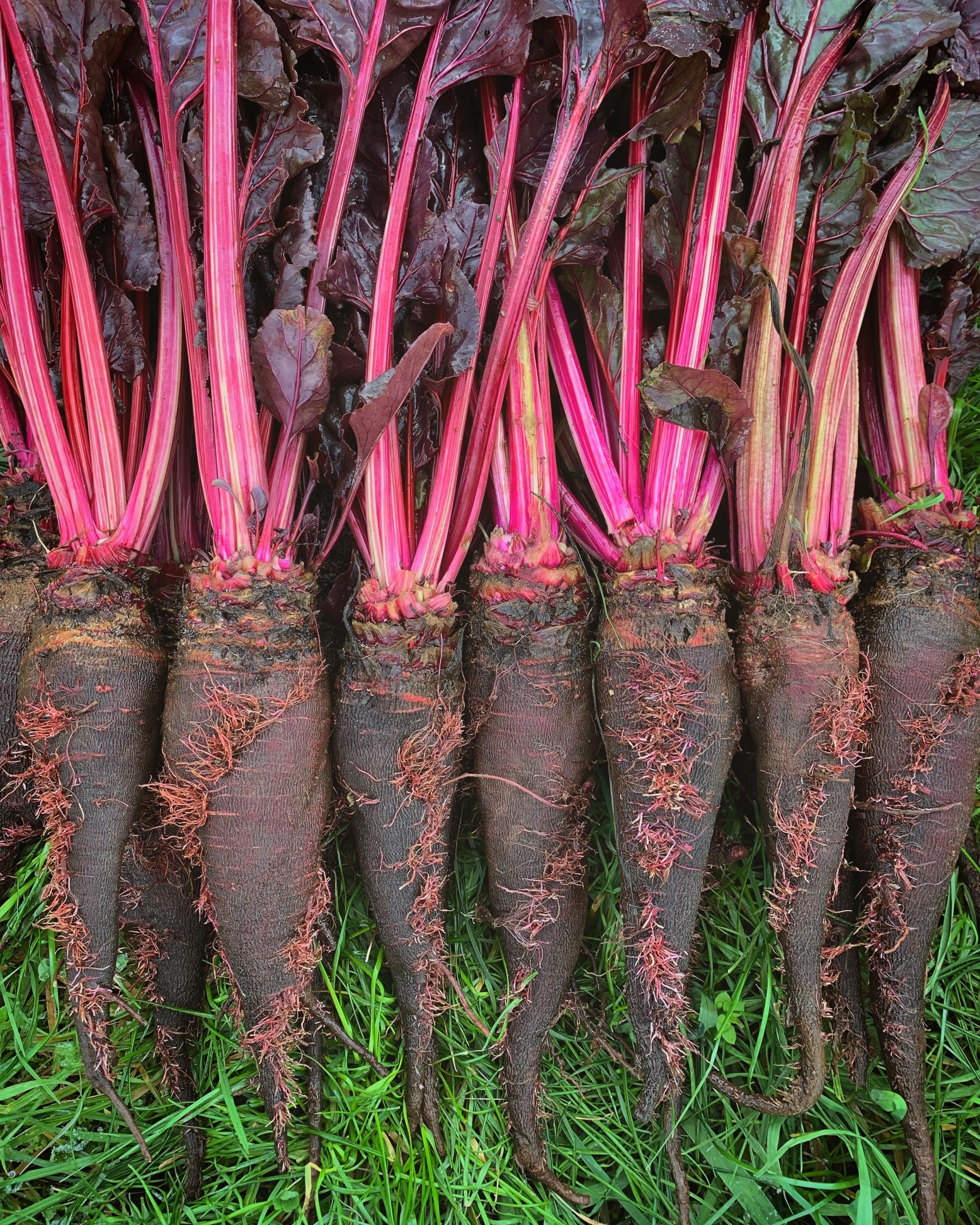Beet, 'Crapaudine'
(Beta vulgaris) If Crapaudine doesn't look like your idea of a modern table beet, that’s because, frankly, it’s not. The variety, whose name comes from the French word for a female toad, is thought to be the oldest beet cultivar still in existence, dating back possibly 1000 years to the time of Charlemagne. It has a wild appearance, large bronze-red leaves, and long gnarled carrot-like roots with thick, wrinkly, bark-like skin and abundant fine root hairs. Crapaudine is beet royalty and is still beloved in French markets and kitchens today. Classically, it is roasted whole over a charcoal fire, after which the skin easily slips off, revealing the bright red flesh. It has some of the deepest, savory flavor of any beet we’ve ever roasted. A treasure for the grower who puts flavor first.
75 days. UO
Packet: 100 seeds
Product Code: BEE-CR-pkt
Availability:In stock
| Translation missing: en.products.general.options | Translation missing: en.products.general.qty | Translation missing: en.products.general.qty |
|---|---|---|
|
$4.50 |
||
|
$18.00 |
||
|
$48.00 |
||
|
$125.00 |
||
|
$500.00 |
Growing Info
SOWING:
Direct sow seeds as soon as the soil can be worked in the spring (April) and into late July. Some people try to push the season even earlier by sowing in flats indoors and transplanting, but we are not those kinds of people. Direct seeding is strongly recommended.
Note: Beets prefer cooler ambient temperatures, light, sandy, and loamy soil, and an even watering schedule (do not let the soil dry out before emergence!). For baby beets and greens, seeds can be sown every 2 weeks until 2 months before your first projected heavy frost.
PLANTING DEPTH:
1/2"
SPACING:
6-8 seeds per linear foot, thinning to 2-3" between plants in rows 15-24" apart (they may be planted closer between rows for non-mechanical cultivation). Each seed is actually many seeds encapsulated in one package!
EMERGENCE:
5-10 days @ soil temp 55-75F
LIGHT:
Full sun to part shade
FERTILITY:
Low to medium. While beets prefer well-prepared and fertile soil (to avoid scab, make sure any addition of organic matter is well composted), they will tolerate lower fertility. Aim for a neutral to slightly alkaline soil with a pH between 6.0 and 7.0. Acidic soils (pH below 6.0) are a no-no for beets!
Specific minerals needed for quality beets are boron (most common mineral deficiency in beets), calcium, potassium, and magnesium. Aim for 1-2-2 (N-P-K) fertilizer one week before sowing.
ADDITIONAL NOTES:
Remember that beets prefer cooler temperatures, even water, and space. Keep em weeded!
If your beets are producing voluptuous greens and small roots, this means your soil is too heavy in Nitrogen.
Severe temperature fluctuations often cause zoning (white rings) in the roots.




